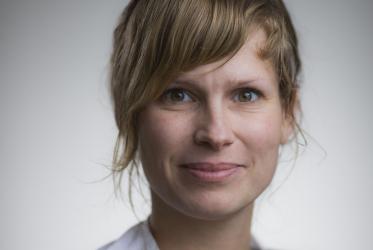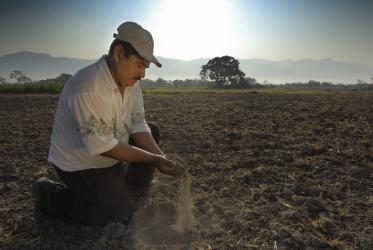The Pilgrimage of Justice and Peace reaches out to persons who are mired in the wilderness of injustice and who lack peace, as in the story of Hagar’s journey in Genesis. The story is reflected in the story of the Caribbean. Levels of inequality between women and men still exist in Jamaica and the wider Caribbean. The story of Hagar unfolds God’s plans through selected agents. As the Caribbean seeks to journey toward peace and justice in the matter of social justice, human rights, and human reproductive rights, responsibilities and practices, the Pilgrimage of Justice and Peace can effectively play a supportive role.
15 December 2017
WCC Programmes







